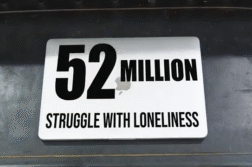DENVER, Colo. (Ivanhoe Newswire) — Your family history can play a big role in helping you stay ahead of any health problems. But questions like: do you have a family history of heart disease, diabetes or cancer can sometimes be impossible to answer for people who have been adopted. But technology is now giving them answers they would’ve never had before. Here’s one smart woman who says genetic counseling is a growing field and is becoming more and more popular among adoptees.
Thirty-four-year-old Marla Strick has lived all of her life in the genetic dark, so to speak.
“I’m adopted and so with that I tried to find out family history and I couldn’t,” Strick told Ivanhoe.
So, in the office of Mary Freivogel, a certified genetic counselor at Invision Sally Jobe in Denver, Colorado, Strick will finally learn: what is her risk of developing cancer?
Freivogel told Strick that she had, “A gene called RAD 50. They’ve done some studies and they feel like it may roughly double risk for breast cancer.”
The answer is as scary as it is important. It’s a bittersweet moment. It’s not the news Strick wanted to hear, but it may be the news that one day saves her life. Even though she’s only 34 years old, Strick will now begin yearly mammograms to stay ahead of her breast cancer risk.
Strick said, “At first you’re like, why did I do this? But then you think it’s wonderful if I can prevent something and be with my child longer.”
Freivogel told Ivanhoe, “I think a lot of patients feel that knowledge is power. It doesn’t mean the knowledge isn’t scary, it definitely is.”
There are nearly eight million adoptees in the U.S. and studies show less than half of them have family medical information about their birth fathers. For nearly two-thirds of international adoptees, no written medical records exist, even for basic things such as vaccination status.
“Just this whole focus on preventive care, genetics is a huge piece of that. It’s a huge piece in understanding how to treat cancer, how to prevent cancer, how to prevent other diseases,” detailed Freivogel.
It’s a huge piece of the family history puzzle that, until now, was missing for many adoptees.
Strick said, “But at least I knew then because I had no clue before.”
According to the CDC, some adoption agencies collect medical information on birth relatives but it is not routine. Laws concerning collecting medical information vary by state. The national adoption clearinghouse offers information on adoption and could be helpful if you decide to search for your birth parents. Go to childwelfare.org for more information.
Contributors to this news report include: Jessica Sanchez, Supervising Producer and Field Producer; Tony D’Astoli, Editor; Rusty Reed, Videographer.



